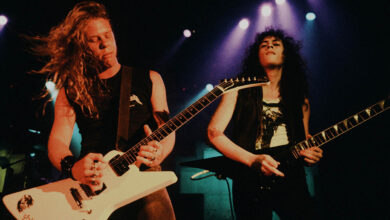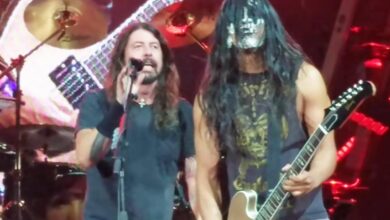Queen’s Epic Live Aid 1985 Performance Shows Pure Joy Without Phones or Cameras
Queen’s performance at Live Aid on July 13, 1985, is regarded as one of the greatest live performances in rock history. The band played at Wembley Stadium in London as part of the dual-venue benefit concert organized to raise funds for the Ethiopian famine. The event, coordinated by Bob Geldof and Midge Ure, was broadcast to an estimated global audience of 1.9 billion across 150 nations, making it one of the largest-scale satellite link-ups and TV broadcasts of all time.
Queen’s set at Live Aid was a masterclass in live performance, showcasing the band’s ability to connect with a massive audience. Freddie Mercury’s charisma and powerful stage presence were on full display as he led the band through a series of their greatest hits. The setlist included “Bohemian Rhapsody,” “Radio Ga Ga,” “Hammer to Fall,” “Crazy Little Thing Called Love,” “We Will Rock You,” and “We Are the Champions.” Each song was performed with a level of energy and precision that captivated the 72,000-strong crowd at Wembley and millions more watching on television.
The performance began with “Bohemian Rhapsody,” where Mercury’s iconic voice and piano skills were complemented by Brian May’s guitar prowess. The transition into “Radio Ga Ga” saw the entire stadium clapping in unison, creating a visual and auditory spectacle. Mercury’s interaction with the audience during the “Ay-Oh” vocal improvisation further demonstrated his unique ability to engage and energize the crowd.
The band’s tight musicianship was evident throughout the performance. Brian May’s guitar solos, Roger Taylor’s powerful drumming, and John Deacon’s solid bass lines provided a robust foundation for Mercury’s dynamic vocal delivery. The synergy among the band members was palpable, contributing to a flawless execution of their set.
“Crazy Little Thing Called Love” featured Mercury strumming a guitar, adding a rockabilly flair to the performance. The set concluded with a triumphant rendition of “We Are the Champions,” which had the entire stadium singing along, cementing the performance’s place in rock history.
Queen’s Live Aid performance not only highlighted their musical talent but also their ability to command a stage and deliver a memorable show. The concert has been credited with revitalizing the band’s career, leading to a resurgence in their popularity during the latter half of the 1980s. It remains a benchmark for live performances and a testament to the enduring legacy of Queen and Freddie Mercury.
Freddie Mercury, born Farrokh Bulsara, was known for his flamboyant stage persona and four-octave vocal range. As the lead vocalist of Queen, he became one of the most beloved and influential figures in rock music. Mercury’s songwriting credits include many of Queen’s greatest hits, such as “Somebody to Love,” “Don’t Stop Me Now,” and “We Are the Champions.” His ability to blend various musical styles and his theatrical performance style made him a unique and enduring figure in music history.
Mercury’s impact on music and culture continues to be celebrated long after his untimely death in 1991. His contributions to music, particularly through performances like Live Aid, have left an indelible mark on the world, influencing countless artists and delighting fans across generations.





